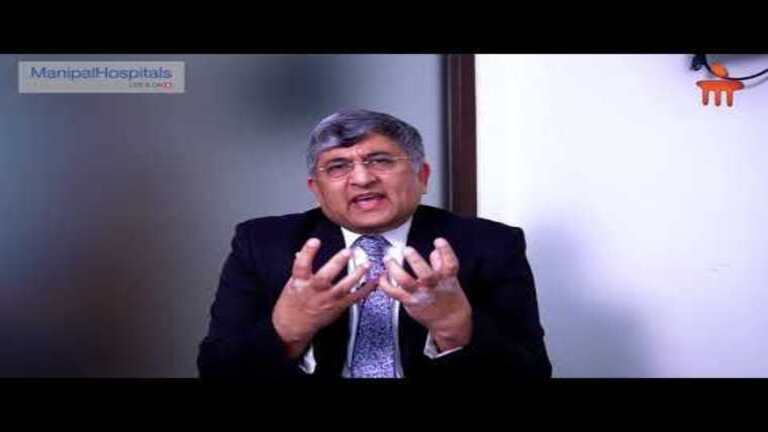-
Book Appointments & Health Checkup Packages
- Access Lab Reports
-
-
Book Appointments & Health Checkup Packages
-
Centre of
Excellence
Centre of Excellence
Other Specialities
- Accident and Emergency Care
- Dental Medicine
- Dermatology
- Diabetes and Endocrinology
- Ear Nose Throat
- ICU and Critical Care
- Internal Medicine
- Neonatology & NICU
- Neurology
- Nutrition And Dietetics
- Obstetrics and Gynaecology
- Ophthalmology
- Orthopaedics
- Paediatric And Child Care
- Physiotherapy
- Pulmonology (Respiratory and Sleep Medicine)
- Radiology
- Spine Care
- Doctors
- Salem
-

Bengaluru

-

Bhubaneswar
-

Delhi - NCR

-

Delhi - NCR
-
-

Goa
-

Jaipur
-

Kolkata

-

Mangaluru
-

Mysuru
-

Patiala
-

Pune

-

Salem
-

Vijayawada
- International Patients












Liver Transplantation Surgery
Liver Specialist Hospital in Tamil Nadu | Hepatic Transplant
A liver transplant is a surgical procedure to remove a diseased or damaged liver and replace it with a healthy one. Transplantation is recommended when the liver is completely damaged and cannot function anymore. The stage where the liver stops working efficiently is called acute liver failure or end-stage liver disease. Liver damage can result from multiple reasons. Some include chronic illness, infection, or excessive alcohol consumption. Due to inflammation, liver tissue damage increases and liver failure can happen suddenly. Consult our Liver Specialist Hospital in Tamil Nadu if you need treatment and care for chronic liver conditions.

OUR STORY
Know About Us
Why Manipal?
Manipal Hospitals Salem has a team of expert surgeons and practitioners who with decades of experiencing liver diseases and disorders. Our team strives to deliver the best healthcare to every individual by providing the highest calibre treatments.
Our surgeons, doctors, nurses, and health professionals care for every aspect of patient and family. We are focused on comforting patients with error-free medical procedures and enabling them to live normal life again. The team also focuses on post-surgery care and gives the right guidance to the patient for the best recovery.
There are different types of liver transplants that the doctor might suggest according to the patient's health condition are Deceased Donor Transplant, Living Donor Transplant, and Split Donation Transplant.
Treatment & Procedures
Transplant and post-op care
If a suitable donor liver has been found, surgeons then work to transplant the donor liver into the patient. The patient will then be placed on medication for pain management, anti-infection and immune suppression. The immunosuppressants are given to ensure that the body does not begin to recognize and attack the new donated liver as an intruder. In…
Living Donor Liver Transplant
In this procedure, a part of a healthy donor's liver is extracted and implanted into the patient that needs a liver. These procedures are most common among family members, since they have the highest chance to match with each other. The donor will spend around a week in the hospital with roughly 8 weeks of recovery time before they are able to function…

Types of Liver Transplants
Deceased Donor Liver Transplant
Deceased donor transplant refers to the type where the liver is removed from a recently died patient. Here, the surgeon removes the liver from the patient and replaces it with the donors. The transplant surgery may take about 6 - 12 hours depending on each patient’s case.
In the case of adult receivers, the entire liver is replaced. However, in some cases, the surgeon might even split the liver into two parts. The bigger part can be given to an adult and the smaller part to a child. The liver grows back to its original size after surgery, thereby giving a new life to the patient.
At Manipal Hospitals Salem, a multidisciplinary board, consisting of gastroenterologists, paediatrics, hepatologists and liver surgeons, discuss every case history of patients before prescribing the best possible treatment.
Living Donor Liver Transplant
A living donor transplant is when the donor is willing and living to donate his/her liver to the patient. Here, the surgeon first operates on the donor and removes either the left or right side of the liver.
After, the damaged liver from the patient is removed and replaced with the part of the liver donated by the donor. The surgeon then makes connections between blood vessels to the new liver and ensures other parts like bile ducts are placed properly. Soon after the transplant, the portions of the liver of both donor and receiver grow into the complete liver by regenerating itself. For the receiver, 85% of the liver is generated just within a week.
Split Donation Liver Transplant
In split donation, the liver is collected from a recently deceased person. This is only possible when the recipients are an adult and a child. In such cases, the donated liver is split into two parts - the left and right lobes. The adult is given a larger right portion of the liver and the child is given a smaller left portion of the liver.
The donated livers grow back to their original size within weeks through the regeneration process. Split donation helps two persons (an adult and a child) simultaneously.
Why Choose Liver Transplant?
The liver is one of the largest and most important internal organs that perform crucial functions to keep the body healthy. If the liver is damaged or injured; and cannot be treated with medications, a liver transplant is a must as it serves as a survival hope for the person. It is because the damaged liver is no longer useful and can harm health. Moreover, a failed liver can only be replaced, unlike a kidney where dialysis can help maintain health and life. The liver is a generative tissue.
At Manipal Hospitals Salem, we welcome family members or close friends who wish to donate parts of their liver and are found to be a good match. When the donor donates parts of the liver to the needy, it regenerates faster and returns to its normal size soon after surgery, making living donor liver transplant the best option. The donor and receiver can live a healthy life after surgery with no risks to health. We hold the reputation of being the best liver transplant hospital in Selam, Tamilnadu.
With a successful hepatic transplant, patients can achieve the following benefits:
-
They get to live longer
-
Lead a better quality of life
-
Can return to normal activities after the surgery
-
It prevents liver diseases from re-occurring.

Facilities & Services
Manipal Hospitals Salem houses a dedicated liver transplant facility staffed by multidisciplinary teams of hepatologists, liver surgeons, anesthesiologists, and other specialists. All of them collaborate for patient assessment, perform liver transplant surgeries, and provide post-transplant care. At the best liver transplant hospital in Salem, a series of tests and consultations with specialists are undertaken for patient evaluation before proceeding with a transplant. Our tie-ups with organ procurement organisations help to fetch suitable donors. The surgical staff utilises state-of-the-art techniques and equipment to perform the transplant. All the latest and greatest equipment and infra facilities are available to ensure successful living donor transplants. Critical liver conditions that may require liver transplantation include acute liver failure, biliary atresia, cirrhosis, hepatitis (viral, autoimmune, and idiopathic), liver tumours, metabolic diseases, portal hypertension, and primary sclerosing cholangitis.
FAQ's
People with end-stage liver disease or acute liver failure require a liver transplant.
Yes, you can live a completely normal life after a liver transplant. Life expectancy increases after successful surgery and recovery.
After the transplant, the new liver grows to its original size within a few weeks. Both the donor and receiver can live a normal life with a healthy lifestyle and care.
A liver transplant usually means replacing the damaged liver with a new liver. In some cases, only a portion of the liver is donated. After the transplant.
A liver transplant is a major procedure, but advancement in medical science makes it safer and highly successful.
A liver transplant surgery usually takes around 6 to 12 hours. It depends on the procedure used and other case-specific complications.
On average, a transplanted liver lasts 15 to 20 years. This duration may vary depending on multiple factors such as comorbidities and lifestyle choices.
Some of the potential risks of liver transplant surgery include infection, bleeding, and rejection of the new liver.
The doctor may advise you to take immunosuppressive drugs for the rest of your life. It is to prevent the new liver from being rejected.
No, it is strongly advised that patients refrain from drinking alcohol following a liver transplant.







